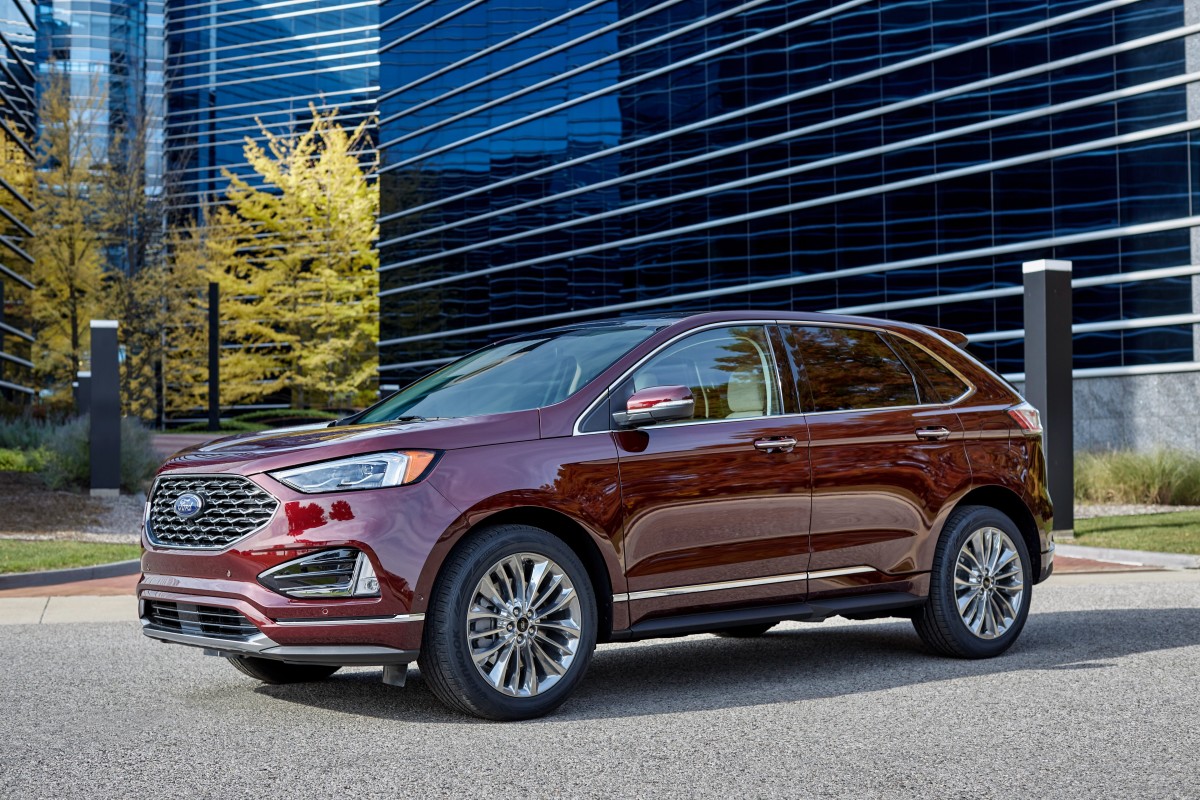Think you need to put off your next car until that loan is paid off in full? Think again. It is perfectly possible to sell a financed car without having first fully paid it off.
Most car shoppers finance their purchases, so dealers buy used vehicles with partially unpaid auto loans all the time. Selling a car you still owe money on is easy and can be done in only a few steps. Here's how.
How To Sell a Car You Haven't Paid
- Find Out How Much You Owe
- Selling Online
- Selling to a Dealer
- Selling to a Private Party
- Selling a Car with Positive Equity
- Selling a Car with Negative Equity
- How to Deal With an Out-of-State Lender
- FAQ
Find Out How Much You Owe
Many shoppers these days rely on financing to buy a car. Depending on the buyer’s credit score, a bank, credit union, or other lender will loan the funds needed to purchase the car, which will then be repaid over time in a series of car payments. Similar to purchasing something with a credit card, auto loans incur an interest rate.
When you take out a loan to buy a new car (or a used car), the bank or lender (for simplicity's sake, we’ll just call it the lender) you're borrowing from gets the title of the vehicle. This is known as having a lien on your title. Once you’ve re-paid the remaining loan balance, the lien is released and the car title will get transferred to you.
The first step is to find out how much money you still owe on the existing loan. This is easy enough: Make a quick phone call to the lender and ask for your payoff balance. Keep in mind that this figure will be based on the remainder of your loan plus any accompanying interest and fees.
Selling Online
So, you’ve seen the signs its time to sell your car. Companies such as CarMax, Carvana, Edmunds, and Kelley Blue Book, provide the option for individuals to sell vehicles online. In terms of private sales, this is arguably the fastest and easiest way to do so—and you can still get a great deal for your car, too.
To sell your vehicle via CarGurus, you just need to enter a few details, such as your VIN or license plate, the vehicle‘s location, and the vehicle‘s mileage. From there, CarGurus will aggregate offers from local dealers. All you need to do is pick the best option and complete the transaction with the dealership to get paid immediately.
Selling to a Dealer
Once you know your loan payoff balance, you can start thinking about how you’d like to sell your financed car. As with selling online via an instant cash offer, selling to a dealer will result in less hassle, as dealerships buy cars with liens on them all the time. You can also sell a leased car to the dealership.
As we mentioned in the previous section, CarGurus can help with this process. If you'd like to sell your car to a dealership, simply upload the same vehicle details requested to receive an instant offer, and in return you'll be presented with up to five offers from local dealerships. From there, the dealership will handle paperwork with the bank, rather than you having to do so yourself.
When working on a trade-in, dealerships can generally roll the remaining balance of your unpaid loan into the purchase price of the new car, either by adding it to the down payment or amortizing it across the new car loan’s monthly payments. In a straight sale with no new-car purchase on the other end, the seller will need to come up with the difference for their lending institution.
Regardless of what you’ve opted to do, be sure to hold onto any and all documentation detailing the arrangement.
Selling to a Private Party
You can make more money by choosing to sell privately. However, selling your car to a private party isn’t quite as straightforward as selling to a dealer. That said, selling your car yourself still isn't hard.
When advertising your car for sale, be sure to include mention of the lien. There isn’t any real reason for a private buyer to be concerned by this information, and being upfront may make the sale process run more smoothly, as the complication won’t come as a surprise.
Some buyers may offer to “take over” your loan payments but, for a variety of reasons, this isn’t recommended. Instead, if possible (say, if your local bank or credit union issued your auto loan), try to complete the sale at the bank’s location. This will allow the buyer to write a check directly to the bank (and another to you, if you’re not upside down on your loan), and you’ll be able to seamlessly transfer ownership of the vehicle.
If you can’t complete the transaction at the bank’s physical location, you can try an escrow service, like escrow.com. In this situation, the vehicle’s title will be held in escrow while payments are made by the buyer to the escrow service. Once the car has been paid off, the title is transferred from escrow to the new owner. A bank or an escrow service can handle the title transfer, delivering it directly or—if the buyer is taking out a loan to buy the car—mailing it to the new lien-holder.
Selling a Car with Positive Equity
What happens if the value of your vehicle is more than the your loan’s payoff amount? This is called “positive equity,” and you’re entitled to any extra money from the agreed-upon sale price; let’s say you’ve agreed to sell the car to a dealer for $10,000, but the pay-off amount is only $8,000. You’ll then receive the additional $2,000. You can pocket that money or put it toward a new purchase.
Selling a Car with Negative Equity
On the other end of the spectrum is what‘s known as being “upside-down” on a car loan. In these situations, the trade-in value being offered for your vehicle is less than the remaining payoff balance for the vehicle’s loan. This is what’s known as a vehicle having “negative equity.” This situation requires a few extra steps, but buyers still have options.
If you have negative equity, the lender will likely want you to pay off your loan before proceeding with the car sale. In this instance, you can dip into your savings, take out a personal loan to cover the payoff balance, or refinance the loan under friendlier terms. Refinancing won’t solve your negative equity situation overnight, but it can make it easier to develop positive equity or lessen the payoff amount to a more manageable figure.
If you’re purchasing a new vehicle in tandem with selling your upside-down vehicle, the dealership may be able to roll your remaining car payments into your new loan. Varying interest rates can impact this transaction, but it’s a common enough situation that most dealerships won’t have a problem managing it. Keep in mind, however, that the new loan plus the outstanding cost of the old car’s loan will mean the total cost of this financing transaction will exceed the new car’s value. This makes it a slippery slope to become upside down again; be sure you have a strong grasp of your personal finance situation before proceeding.
How to Deal With an Out-of-State Lender
If you’re selling a car in the same state where the lender operates, you can complete the sale at the lender’s office and transfer paperwork then and there. But what do you do if the lender is out of state?
To complete the sale, you’ll need to have the title. However, you won’t have the title in hand until you’ve paid off your loan, and it can take weeks for lenders to mail a title after a loan has been paid. So, what are your options?
Some states will issue temporary operator permits, allowing the buyer to legally drive the car (for a limited time) without a title. If this is the case, you can send them on their way with the vehicle, pay off your outstanding balance, and then mail them the title after you receive it from your lender. The buyer is assuming more risk in this situation, but it’s the easiest solution. Check with your state’s Department of Motor Vehicles (DMV) about temporary operator permits.
FAQ
How do you get rid of your car if you still owe money on it?
You can sell a car even if you have a car loan. Acquire the payoff amount from your lender to know just how much you owe. That figure can either be rolled into your next loan if buying another car from a dealer, or you can pay it off via a personal loan, savings, or the money you make from the sale of your vehicle.
Do I have to pay off my car before I sell it?
Technically, yes. You can not receive your car’s title until you’ve paid off your car, and you need the title to transfer ownership. However, you can use the funds from the sale to pay off the loan, and transfer the title to the new owner afterward. Just be sure the seller can obtain a temporary operator’s permit from their DMV.
Does selling a financed car hurt your credit?
Your credit can suffer a short-term penalty when you pay off a vehicle loan early. That shouldn’t be a huge problem if you generally have good credit and don’t intend to apply for finance in the near future, but could be more of a concern otherwise—a credit report will provide a good overview of your situation. Additionally, be sure to research any prepayment penalties. Many states restrict these penalties.






